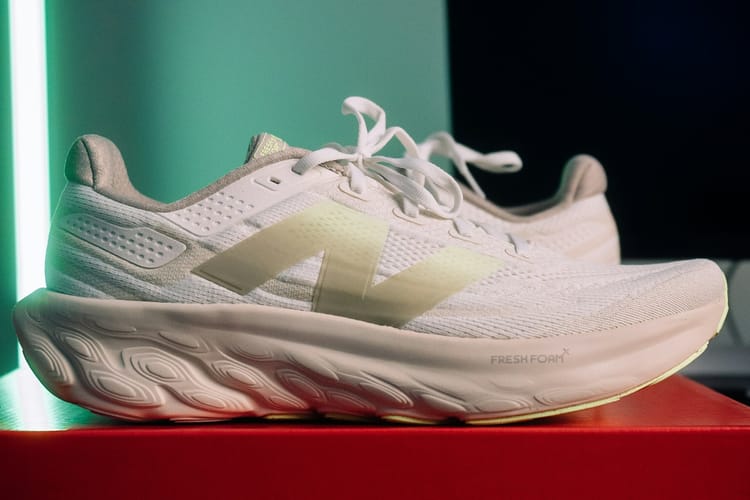Cashing In.

During yesterday's long run, I cashed in a year long build of running fitness.
You see for the past year, I've focused predominantly on training in zone 2 heart rate range.
Zone 2 heart rate work is where your body is primarily using the aerobic system for energy.
It's training that is somewhat intense, but manageable.
With a big enough zone 2 base of conditioning, the body is able take on higher intensity work. Intense training will fire up the anaerobic system for energy, but to work at its best the aerobic system provides a big assist too.
I like to think of it like a hybrid car. The big battery and gas engine working together.
You see when a runner starts running at a high intensity for a long time, the biggest factor to literally dropping to a stop is high levels of lactate in the body.
And who can take in lactate for fuel to keep the levels in the body manageable?
The same aerobic system trained during zone 2 training.
So I cashed in yesterday.
I pushed my pace faster than normal for a 60 minute run and to my delight, I was met with ease.
My heart rate didn't drastically rise. My legs didn't experience any burning sensation.
A year ago, my zone 2 training pace was 12:22min/mile.
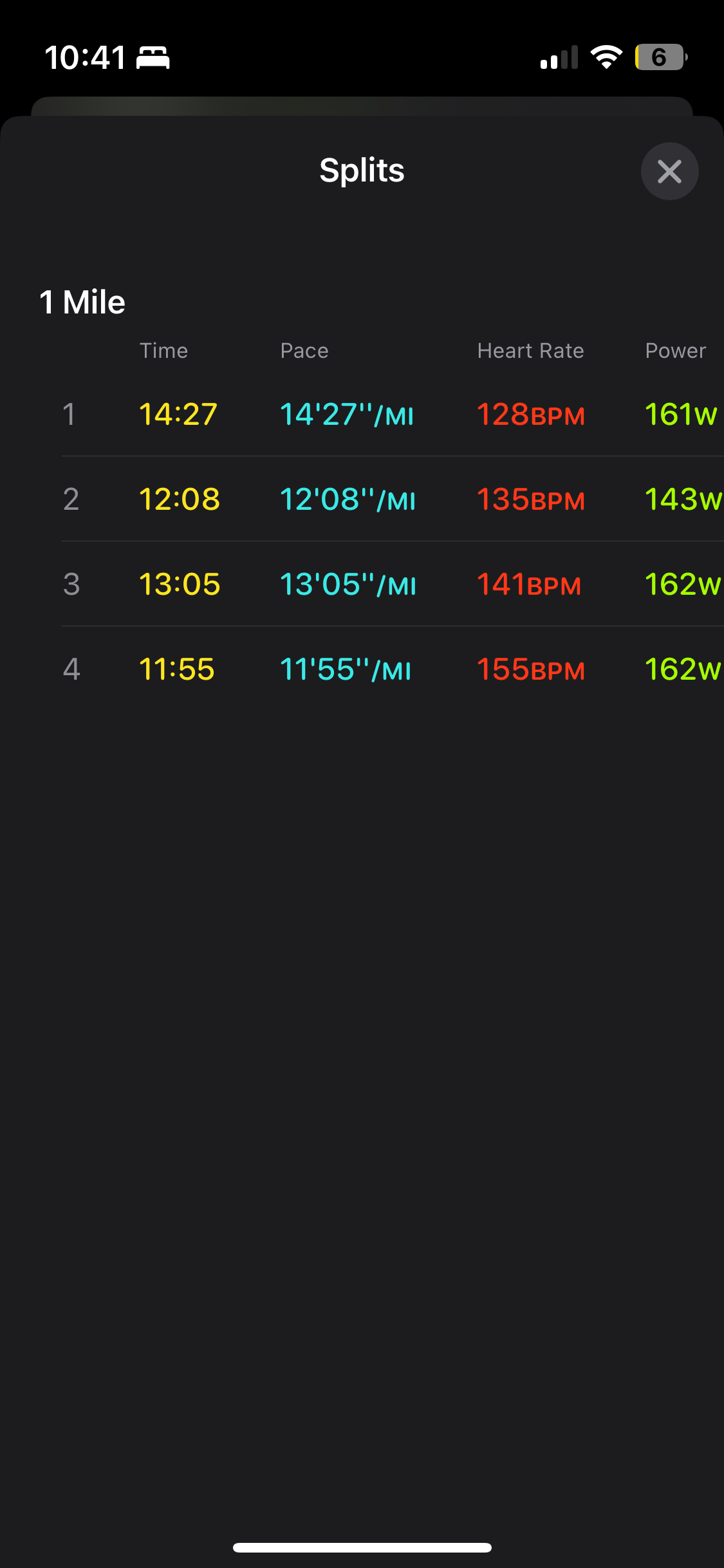
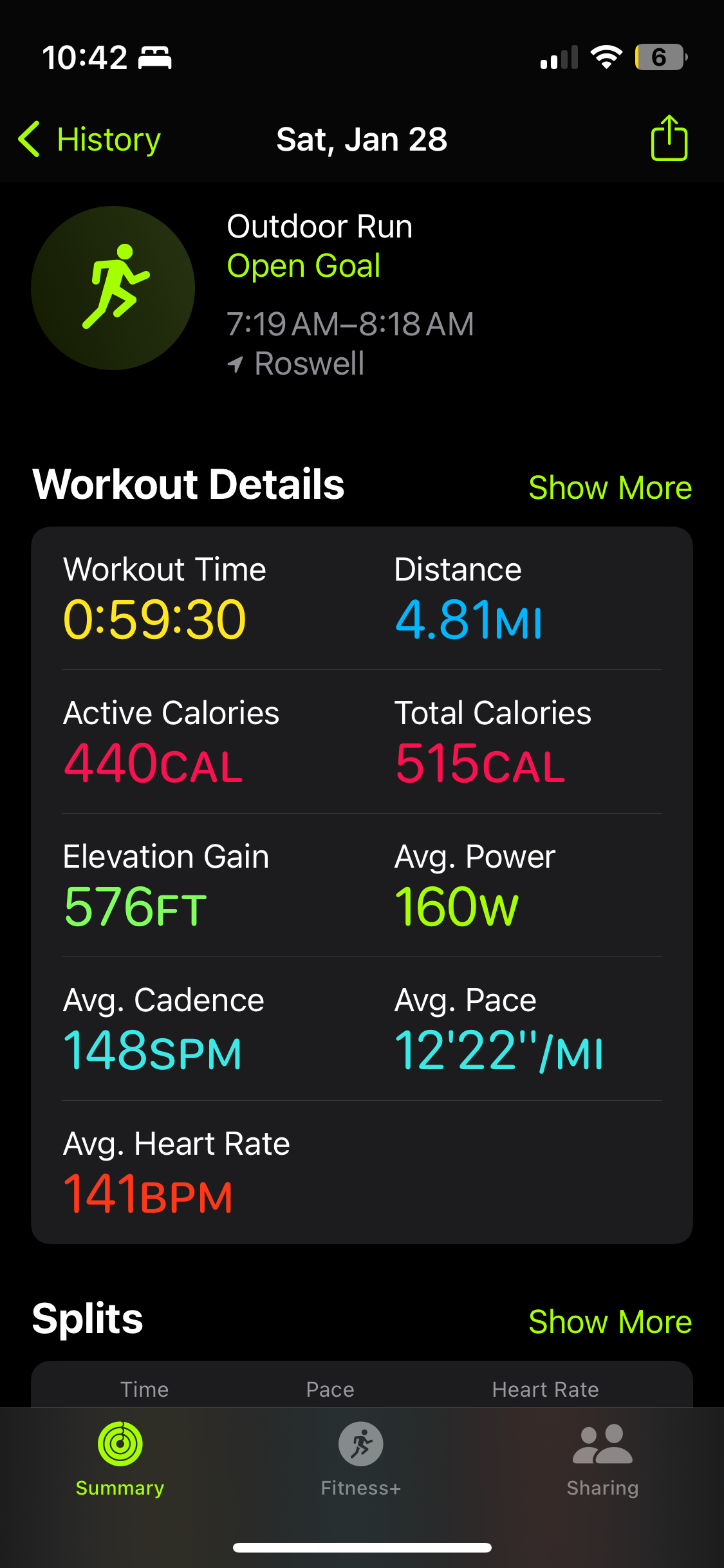
January 2023 - 60 minute run only covering 4.81 miles.
Yesterday, my average pace was 9:51min/mile.
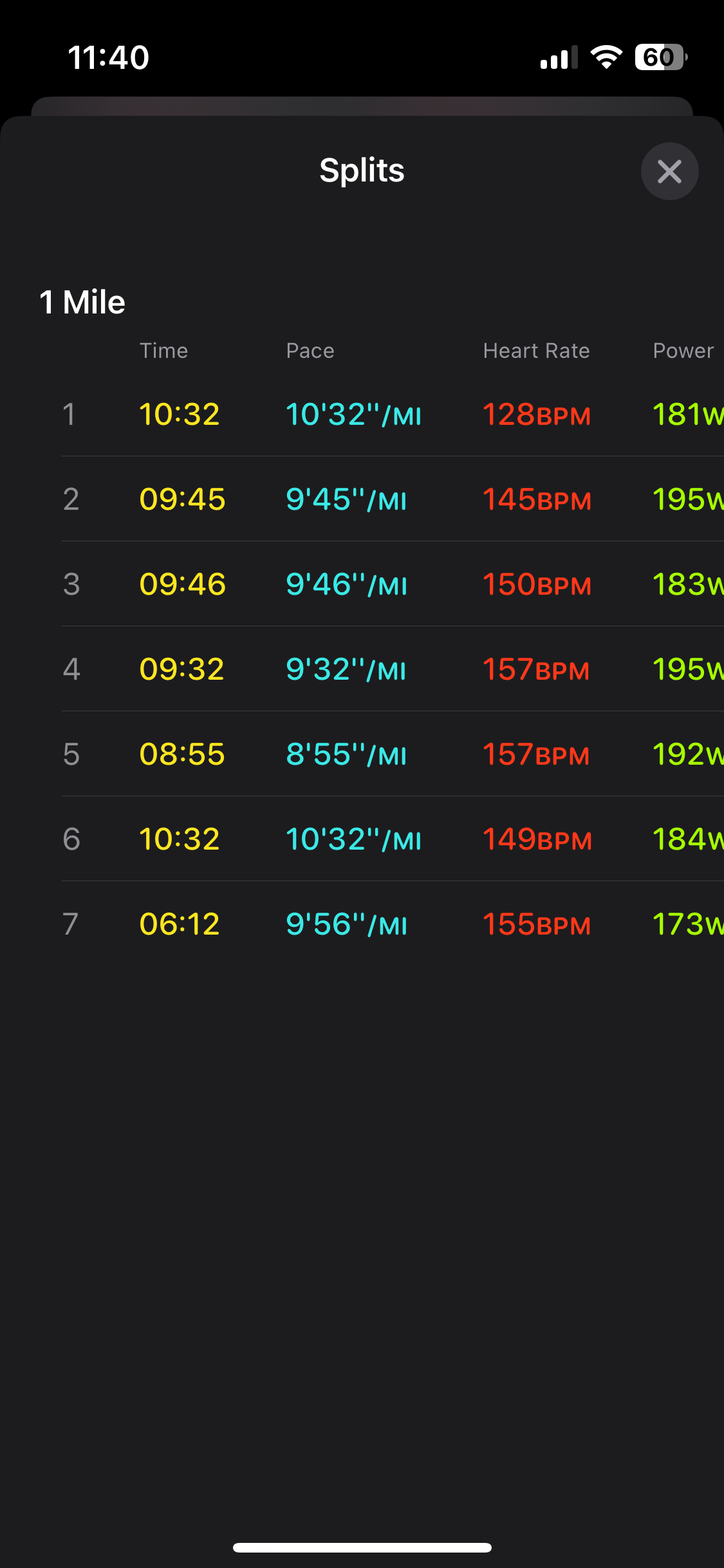
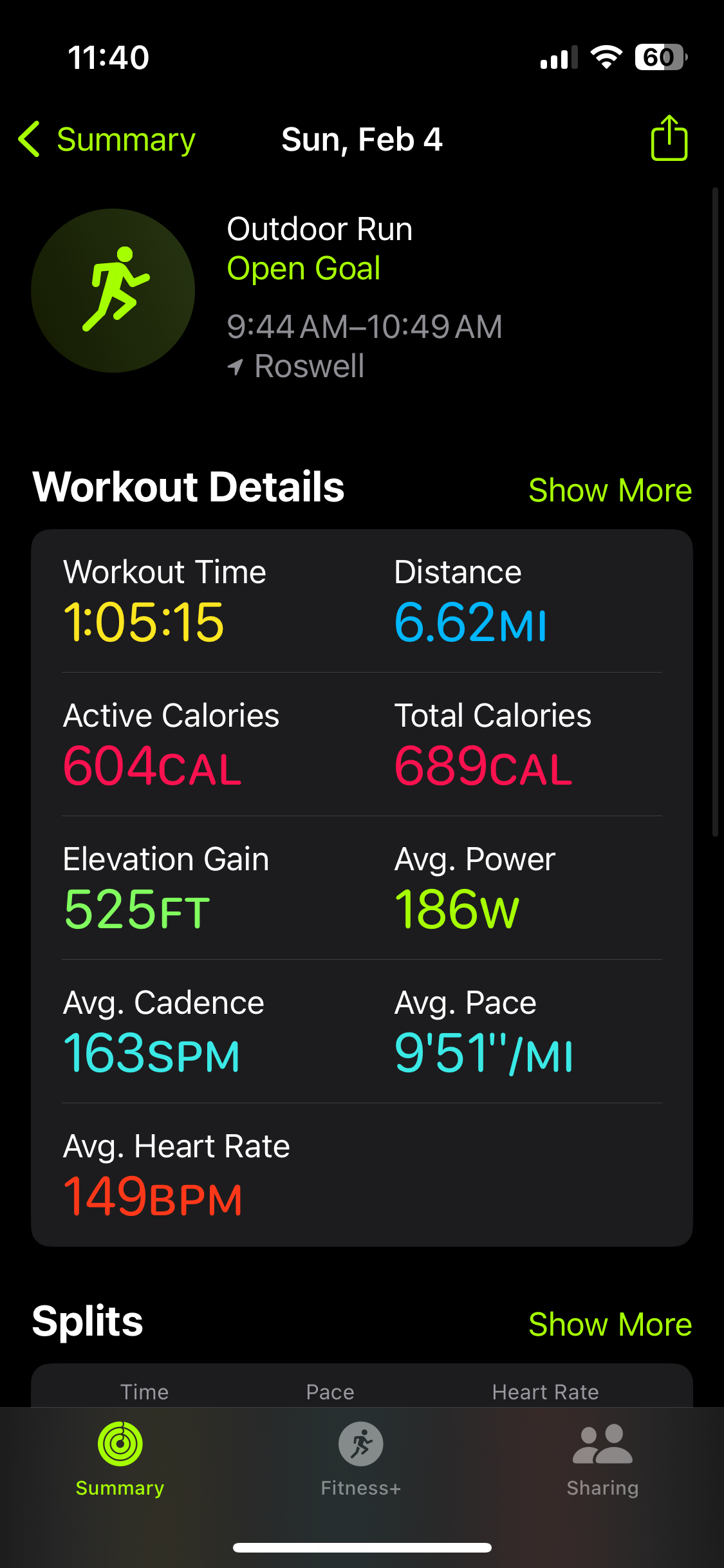
February 2024 - 60 minute run now covering 6.62 miles.
Now I'm ready to get to hard work.
For the next few months, I will start one to two times a week running at faster paces to fine tune the anaerobic system.
My next goal race will be the Peachtree Road Race on July 4th, here in Atlanta. It's a 10k race that tests your discipline and hill climbing.
I'm going to push myself this year.
There's no gambling here. This is methodical and proven work.
Sub 40min finish? Sure why not.
Making Zone 2 Work for You.
So now you've read my results of dedicated zone 2 training.
How can you implement it in your running?
These are takeaways from my experience.
Wear a heart rate monitor.
I'll state the obvious here. But to know that you're running in zone 2, you'll need some form of heart rate monitor.
If you wear an Apple Watch like me, it can indicate what zone you're in while running. Any running watch from Garmin or Polar would too.
Don't forget to set your heart rate zones.
Humble your ego - run slow.
If you're competitive like me, the biggest challenge will be running slow. We're talking almost speed walking or jogging at times.

When I first started, my body felt embarrassingly slow. I've even asked myself, "am I even running?"
Take your ego out of the process. If you've never done any dedicated zone 2 training, you will be running slow.
And that's okay.
Give yourself time.
Time is your friend here in many ways.
First, the main objective is to build a massive amount of time in zone 2. You want to expose your body as much as possible to this heart rate range.
Your heart, lungs, and blood vessels will adapt to a robust cardiovascular and pulmonary system.
My training was a mix of running and using my Peloton in zone 2.
Second, to really give yourself the best chance of positive adaptations, I suggest training in this zone 2 for at least 6 months.
If you're patient, go for a full year like I did.
This means rarely racing. Just commit to putting in the time.
Get comfortable shoes.
You won't be running very fast. So get comfortable running shoes.
I'd keep it simple. Shoes with plates aren't necessary here.
Also, I'd avoid any aggressive rocker geometry to the shoes. (The newly released Hoka Cielo X1 is a clear example of what NOT to get.)
Don't have the rocker geometry do the work of push-off for you. You're going to spend a lot of time running. You might as well put the time to work on your running form.
Look for shoes that are softly cushioned. You could even look for shoe models that aren't exactly the lightest too. This could help slow you down.
Hope this shows you that getting better at running takes time. Running is no different than any other sport.
Stop thinking people are naturally fast. There are likely years of training behind their abilities.
What I love about running is that getting faster at running is attainable for more people than most think.
Thank you for reading. Happy running out there!
p.s.
Zone 2 training is also beneficial for longevity and optimal metabolic health.
In this video Dr. Peter Attia shares a huge Q&A about zone 2. I linked directly to the part about the benefits of Zone 2 training. Definitely worth a listen to the whole thing too.

